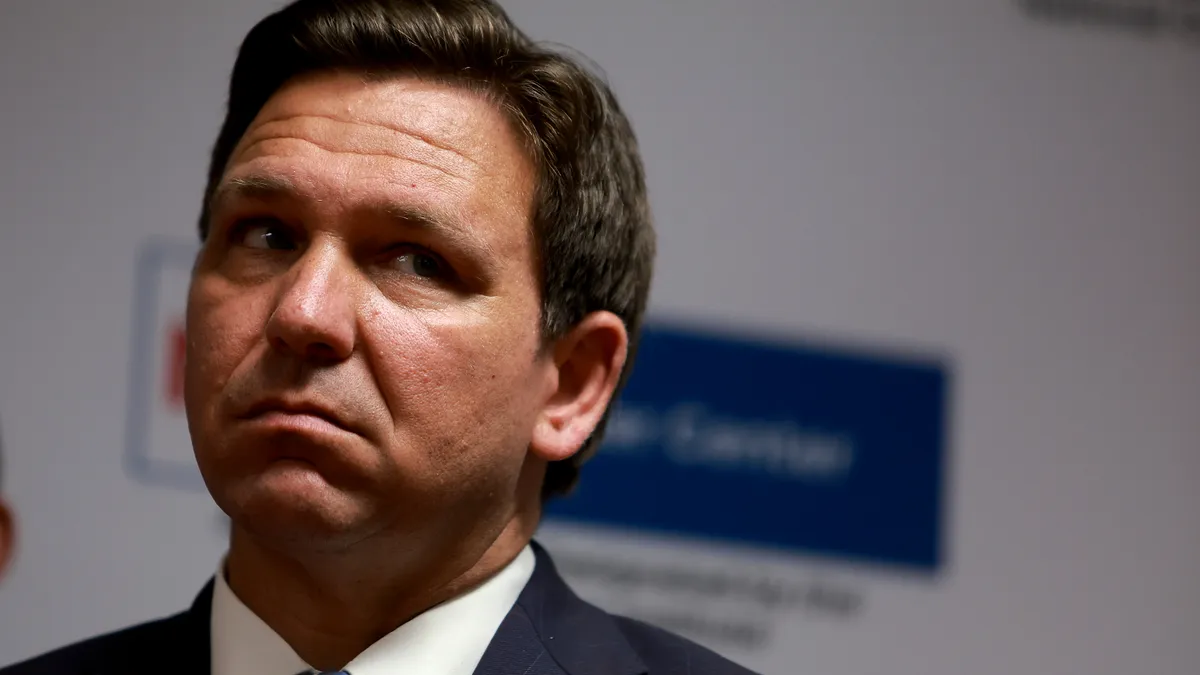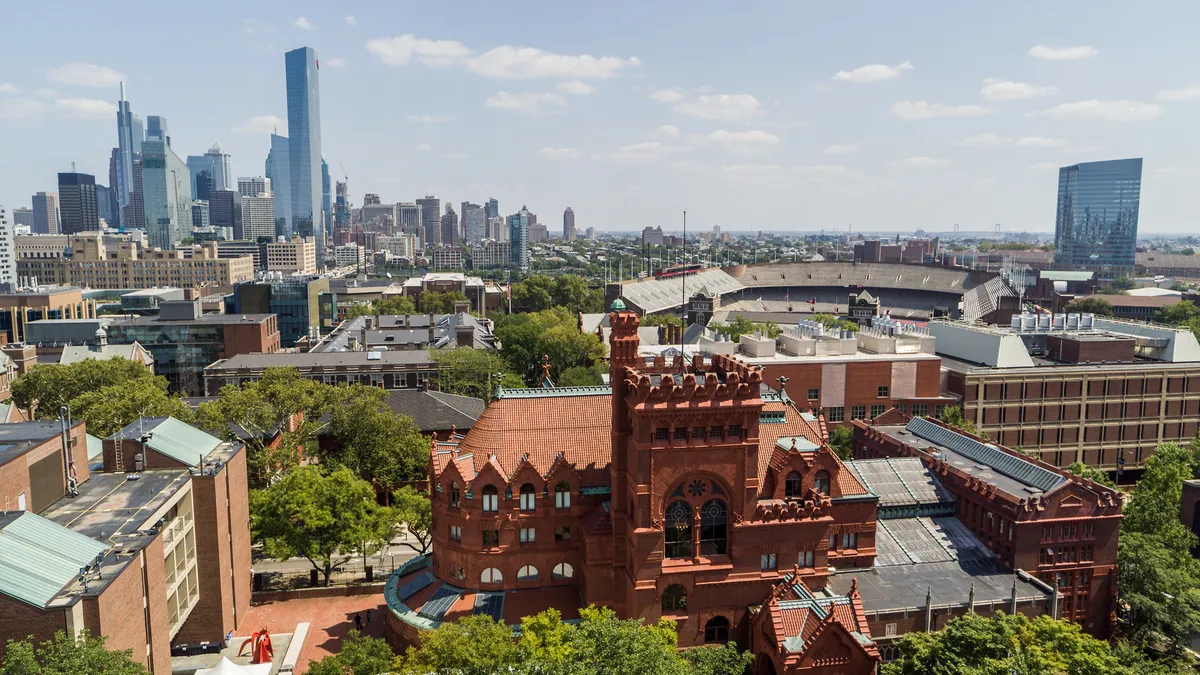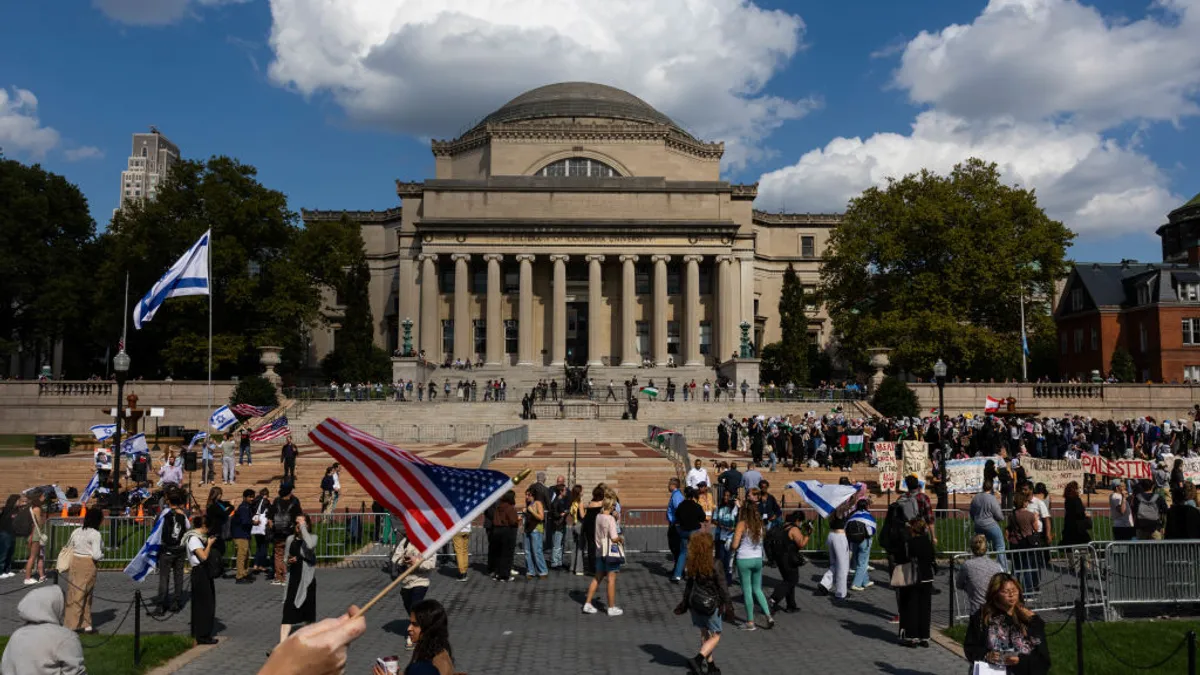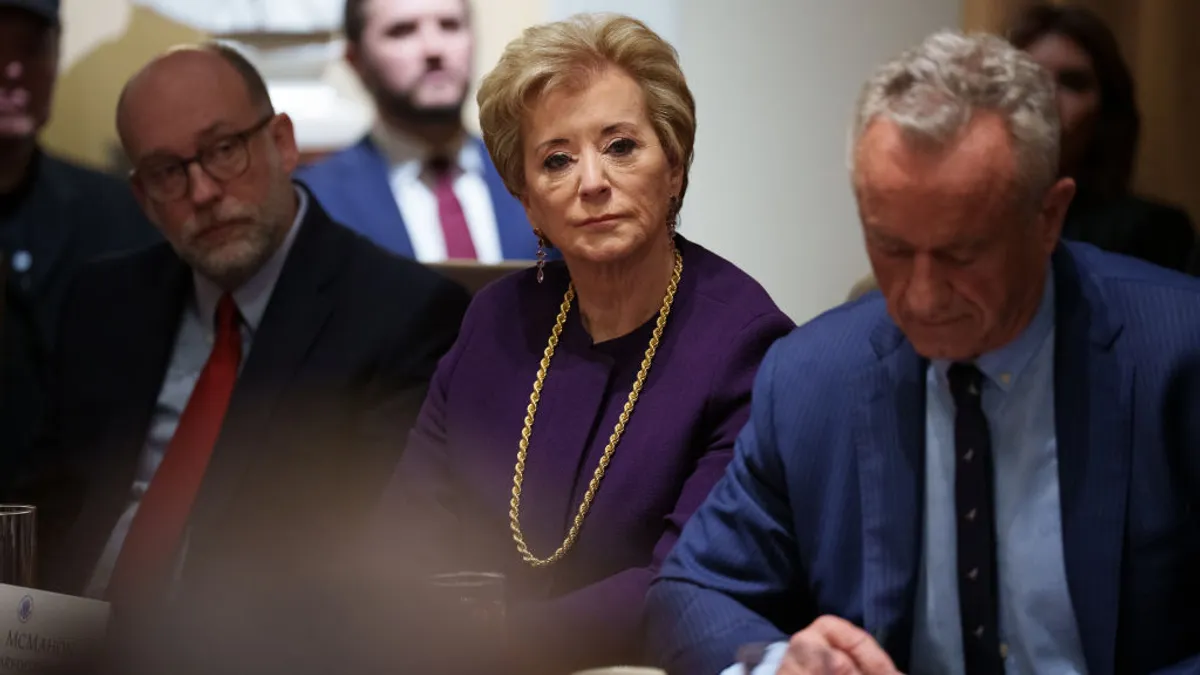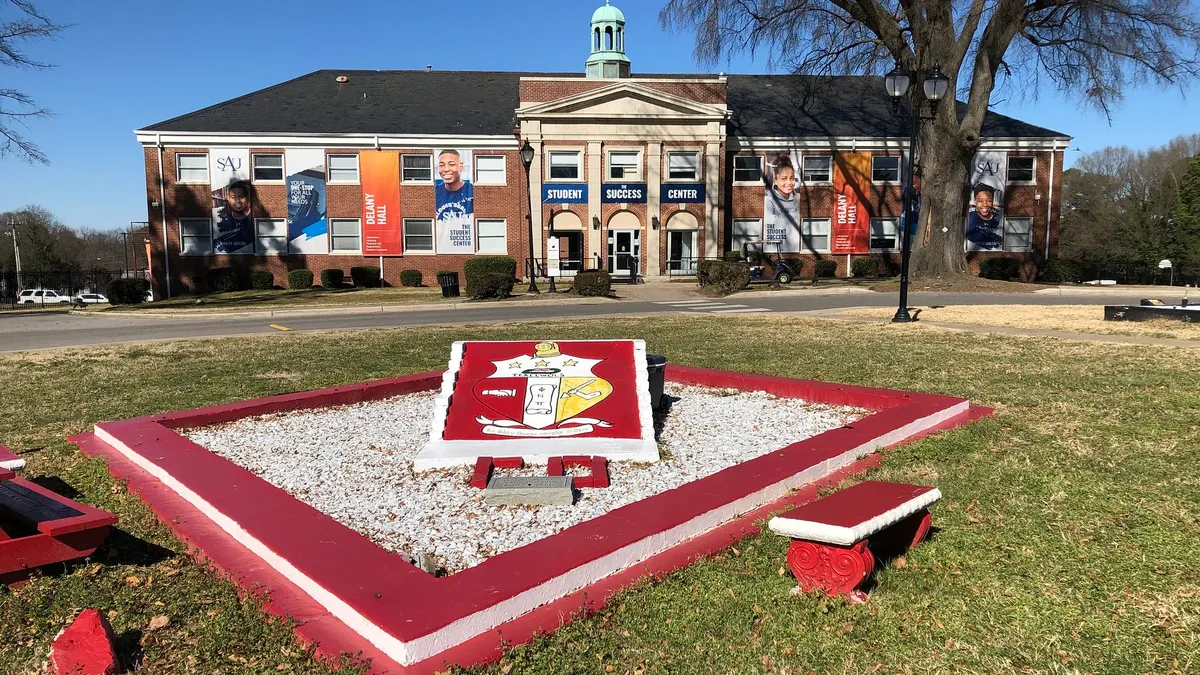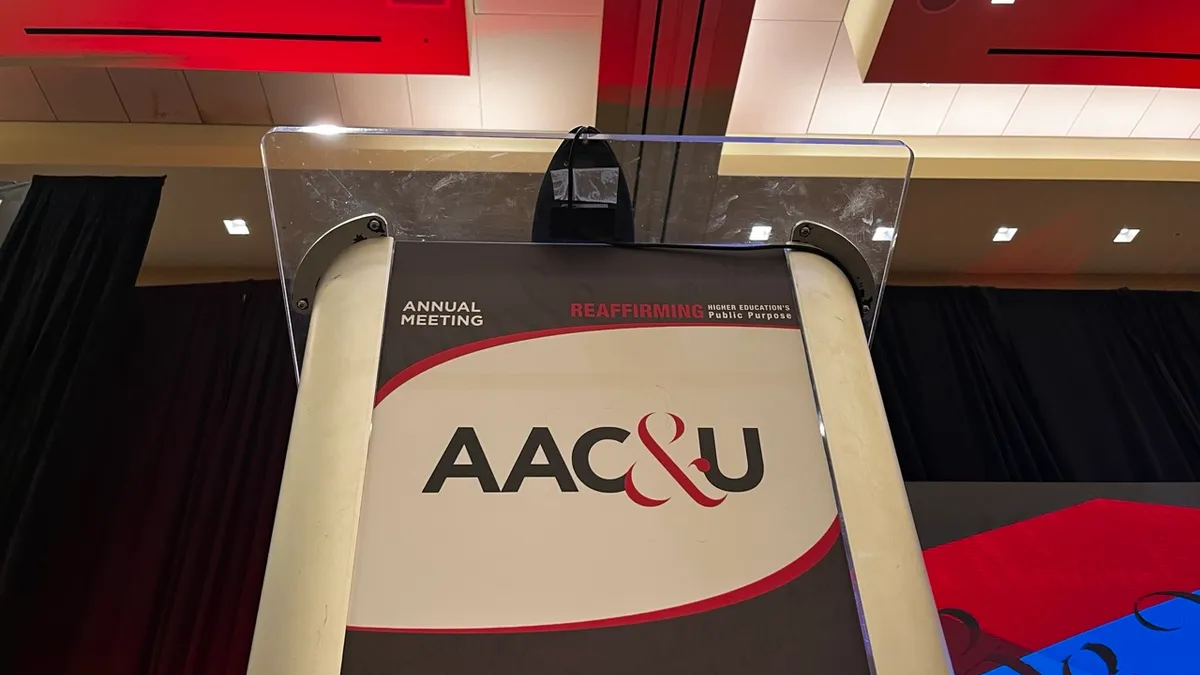Editor’s note: This story includes homophobic language that could be disturbing to readers.
Last month, as Florida’s Republican governor, Ron DeSantis, dialed up his legislative crusade to transform the state’s public colleges according to his vision, the provost of another institution — in New York — wrote an essay about it.
“Send us your woke, your trans,” read the headline of Donald Hall’s op-ed in the Miami Herald, in which he proclaimed his college, the public Binghamton University, would aggressively recruit and poach Florida students and faculty amid DeSantis’ campaign to wipe out diversity programs and restrict faculty tenure on state campuses.
“DeSantis may be setting up a great reverse migration of intellectuals, innovative thinkers and creative talent coming back home (and sending their children back) to a place that embodies tolerance, love for diversity in all of its manifestations and a deep commitment to the protection of iconoclastic, world-changing ideas, one that requires a strong tenure system,” Hall wrote.
His essay confirmed a scenario higher education leaders had predicted: that DeSantis’ efforts would spur colleges outside Florida to woo away the state institutions’ top faculty talent and that they — and some students — would flee the Sunshine State for more progressive pastures.
Hall said in an email to Higher Ed Dive that he’s received half a dozen or so job inquiries from Florida faculty thus far, as well as “very positive emails from parents and our own alumni who live there.”
But would a theoretical faculty exodus be so massive? Probably not, according to one expert, Brendan Cantwell, a higher ed professor at Michigan State University.
Cantwell argues some preeminent faculty may step away from Florida’s public colleges. But he and other higher ed experts say it's even more likely the state's institutions will have trouble recruiting new professors, rather than seeing a tide decamp.
After all, colleges need resources to hire the highest performing researchers, which aren’t infinite. Plus, there are plenty of reasons faculty would want to remain in Florida, Cantwell said.
“Some people will also want to stay and fight the good fight,” Cantwell said.
Different states, similar fights
The political strife in Florida exemplifies how colleges nationwide have been yanked into America’s culture wars. Lawmakers across the country, most of them conservative, have tread upon colleges’ operations in ways rarely seen, seeking to restrict curricula choices, limit donations from certain countries and abolish tenure.
DeSantis, for one, is seeking to dismantle some of postsecondary education’s most treasured tenets. Legislation he’s backing would not only ban public colleges’ diversity initiatives, but also degree programs like gender or queer studies, a strike against higher ed’s shared governance model.
The governor’s office did not respond to a request for comment Wednesday.
Cantwell compared the situation in Florida to that in Wisconsin about eight years ago, when then-Gov. Scott Walker, a Republican, gutted tenure protections through state legislation. This handed over tenure control from campuses to the University of Wisconsin System’s regents board — which is largely appointed by the governor.
DeSantis is eyeing a 2024 run for president, and pundits say he’s leaned into ideological arguments against public education to distinguish himself. Walker similarly used the tenure battle and union fights to boost his profile for his short-lived 2016 presidential campaign.
In the wake of Walker passing tenure limitations, the state flagship University of Wisconsin-Madison spent millions — at least $16 million in the 2015-16 academic year — to retain star faculty who had job offers elsewhere.
Whether Walker’s policies caused the Wisconsin flagship long-term damage, like the ability to secure research grants, is “an empirical question we don’t have the answer to,” Cantwell said.
UW-Madison spokesperson John Lucas said in an emailed statement that though the university initially saw more faculty receiving outside job offers after tenure policies changed, those have since died down. It now consistently retains faculty, Lucas said.
“The university continues to make investments in its faculty through endowed chairs, retention funds and faculty salaries, among other initiatives,” Lucas said. “UW-Madison welcomed 168 new faculty last year, the second highest number in more than a decade.”
Like in Wisconsin, some Florida faculty will almost assuredly find the exit door, Cantwell said, though prospective professors also will just avoid the state. These potential faculty members wouldn't have established the professional connections that could entice some Florida professors to remain, he said.
Cecilia Orphan, a higher education professor at the University of Denver, said the graduate students she works with who are hunting for academic jobs have ruled out positions in states like Florida and Texas, where lawmakers are considering a spate of bills that would ban diversity offices and curtail tenure.
“They won’t even look at those states,” Orphan said. “They see the restrictions on abortion rights, anti-trans legislation, the reaction against critical race theory. The political environment is untenable.”
She said well-resourced institutions in Florida, like the state flagship the University of Florida, will try to sweeten salaries and benefits to try to retain professors, but “money can only go so far.”
“Professors are ideologically motivated and they have a strong sense of morals and ethics,” Orphan said.
Colleges taking advantage of the moment
Hall, Binghamton's provost, said he was moved to write his piece out of outrage, and that it felt personal, not professional. As a gay man who grew up in rural Alabama and then attended the University of Alabama in the 1970s, he found no support for LGBTQ students.
Administrators did not act “when I was called fag in the dining hall and my dorm room was graffitied with ‘queer’ and worse,” Hall said. “Ron DeSantis and his lackeys are throw-backs to a time of hatred and are complicit with homophobic violence. They are as shameful as they are shameless.”
Hall said he viewed his essay not as an advertisement, but rather as a warning to Florida state government: “If you don't want your talented faculty and college-age students — we do!”
Cantwell said the Binghamton provost may have had another motive behind his missive: publicity. He said the move publicly signals to New York government officials that the university is thinking “strategically and proactively,” which could grease the wheels for more state funding.
This is particularly important for Binghamton, which New York Gov. Kathy Hochul elevated to flagship status last year as she tries to revitalize the State University of New York system. Binghamton is part of that system, and Hochul is pressing for it to reach new heights of research funding — $1 billion annually by 2030.
“You’ll notice, UCLA didn’t write that column, it wasn’t the provost at Yale,” Cantwell said. “Binghamton is a fine research institution, but it’s not as much of a mover and shaker in the research world.”
Higher ed experts said Hampshire College, a private nonprofit liberal arts institution in Massachusetts, was similarly capitalizing on a public relations opportunity when it offered students at the New College of Florida — a public institution targeted by DeSantis for remolding — matching tuition.
DeSantis has started to overhaul New College, a liberal arts institution with a progressive reputation, into a conservative hub by ousting members of its governing board and replacing them with right-wing allies who in turn forced out the college’s president. California Gov. Gavin Newsom, a high-profile Democrat, spoke near the campus this week, commiserating with students over DeSantis’ actions.
Florida officials have said they envision New College as a southern version of Hillsdale College, a prominent conservative institution in Michigan that eschews federal funding.
Will students flee?
Florida faculty and lawmakers have expressed concern DeSantis’ policies will drive out some current students or turn off prospective ones from enrolling in the state.
These fears may be well-founded.
A recent survey from the Art & Science Group, a higher ed consultancy, found 1 in 4 college-bound high school students ruled out colleges based on the politics, policies or legal environment in states where the institutions are located.
LGBTQ students reported turning down colleges at higher rates than their straight peers because of a state’s political climate, according to the report. Similar shares of conservative and liberal students, 28% and 31% respectively, rejected colleges for those reasons.
Florida was one of the states that students most frequently marked off their lists.
A dangerous result of DeSantis’ policy push, though, Cantwell said, is establishment of “a new normal” as professors realize that working in Florida comes with politically imposed restrictions.
Orphan, of the University of Denver, said she thinks some Florida professors may attempt to leave academia altogether because of the constraints.
“You just don’t want to feel like you’re at risk, having to constantly look over your shoulder and be unsure what the legislature is going to do,” Orphan said. “It’s like the Soviet Union; it’s just wild.”



